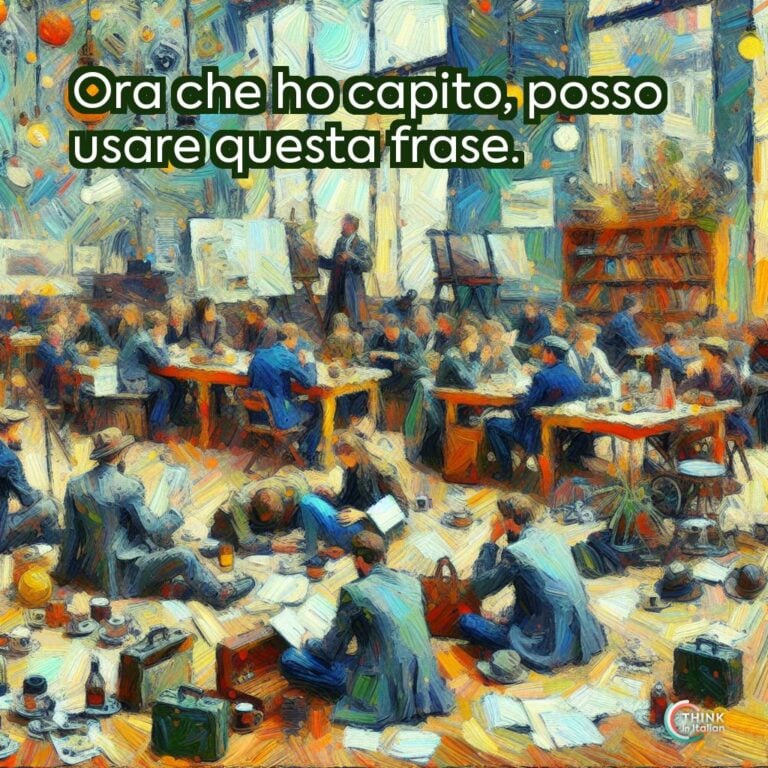What Does “ora che” Mean in Italian?
As simple as it is, the Italian expression ora che can be translated as “now that” in English.
It is used to introduce a situation or condition that has just occurred, leading to a new set of circumstances or actions. It often connects two sentences, where the first presents a new reality and the second describes the consequence or reaction to it.
Ora che lo sai, possiamo iniziare.
Now that you know it, we can start.
Listen to this Claudio Baglioni’s song “Ora che ho te” to get in the mood!
“Ora che” in Italian
Structure
Linguistically speaking, ora che introduces a dependent clause that explains a new situation or condition. This clause provides context for the main clause which follows it.
The tense used after ora che often depends on the context of the action. In general, the indicative present and present perfect are the most commonly used:
- Presente (present):
Ora che piove, restiamo a casa.
Now that it is raining, we stay at home.
- Passato prossimo (present perfect):
Ora che hai finito il libro, posso leggerlo io.
Now that you have finished the book, I can read it.
One last thing I want to mention is about punctuation: of course, this is relevant only for written Italian, yet it is good to know.
If ora che starts the sentence, you must use a comma to separate the subordinate clause from the main clause. Instead, if it is in the middle of the sentence, no comma is used.
“Ora che” vs “una Volta che”
Both expressions are used to introduce a dependent clause that establishes a condition that leads to a consequence action. However, their use is different, and I want you to understand these differences to use them correctly in Italian.
- Ora che
It means “now that” and it is used to emphasize a change of state or a new situation that has just occurred. It implies that the condition in the dependent clause is newly established and has current relevance.
As I mentioned before, it is commonly used with the indicative present or present perfect.
Ora che sei qui, possiamo andare.
Now that you are here, we can go.
Ora che ho imparato l’italiano, posso viaggiare da solo.
Now that I have learned Italian, I can travel alone.
- Una volta che
It means “once” or “once that” and it is used to indicate a condition that, once completed, allows for something else to happen. It has a more sequential or conditional meaning, suggesting that after one event is completed, another will follow.
For these reasons, it is typically used with futuro anteriore (future perfect) to refer to future actions, and the passato prossimo for past actions.
Una volta che avrai finito il lavoro, potrai uscire.
Once you have finished the work, you can go out.
Una volta che siamo arrivati a casa, abbiamo cenato.
Once we arrived home, we had dinner.
A relevant piece of information about the Italian una volta che is that it can be used with a past participle: when used this way, it introduces a completed action which sets the stage for what happens next.
Moreover, the relative pronoun che is omitted, leaving una volta + past participle only. Let me show you how the previous sentence can be used with this structure:
Una volta arrivati a casa, abbiamo cenato.
Once arrived home, we had dinner.
Of course, remember that the past participle behaves as an adjective, therefore it must agree in gender and number with the subject!



